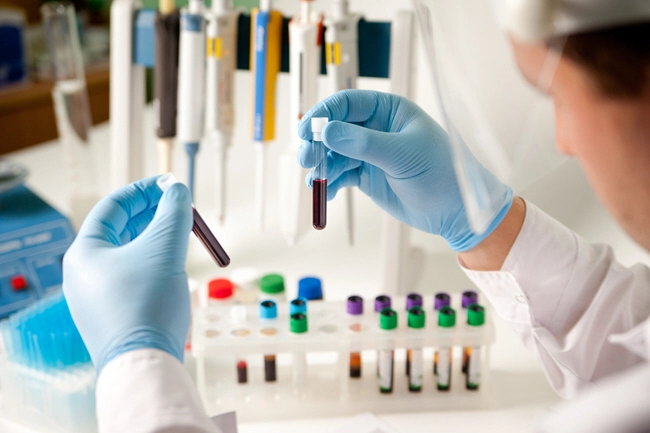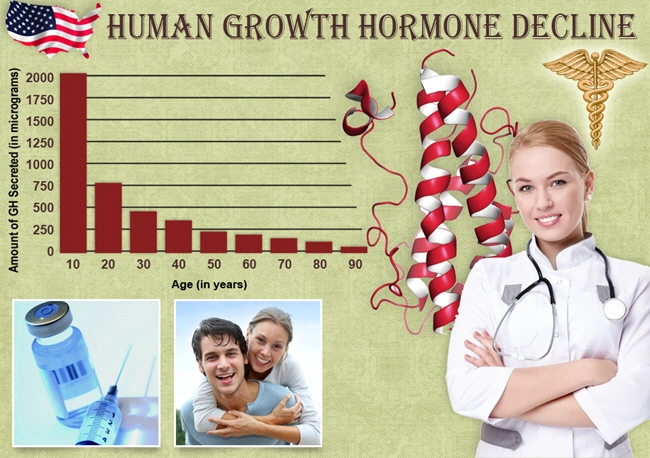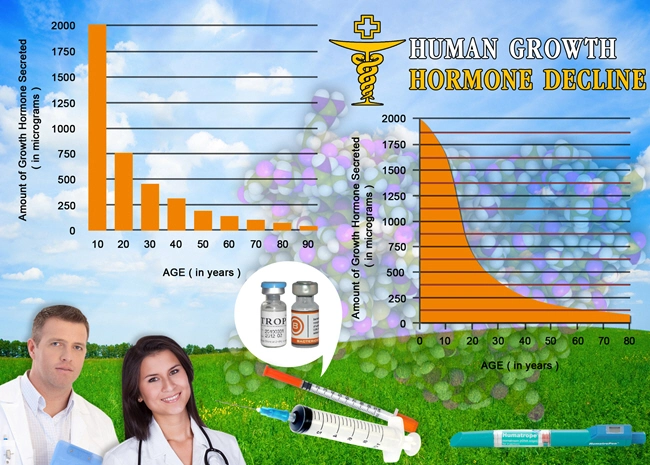
Introduction
The health of the male reproductive system, particularly the testicles, is a critical aspect of overall well-being and fertility. Recent studies have begun to shed light on the potential impact of environmental factors, such as pesticide exposure, on testicular health. This article delves into the relationship between pesticide exposure and testicular health among American men, emphasizing the importance of understanding and mitigating these risks.
The Role of Pesticides in Modern Agriculture
Pesticides are widely used in the United States to protect crops from pests and diseases, ensuring high agricultural yields. However, the pervasive use of these chemicals has raised concerns about their potential impact on human health. Pesticides can enter the human body through various routes, including ingestion of contaminated food and water, inhalation of airborne particles, and dermal absorption.
Mechanisms of Pesticide Impact on Testicular Health
Research has indicated that certain pesticides may interfere with the endocrine system, which regulates hormone production and function. Endocrine-disrupting chemicals (EDCs) can mimic or block hormones, leading to imbalances that may affect testicular function. For instance, studies have shown that exposure to organophosphates and organochlorines, common classes of pesticides, may lead to decreased testosterone levels and impaired spermatogenesis.
Epidemiological Evidence Linking Pesticides to Testicular Disorders
Epidemiological studies have provided evidence of a correlation between pesticide exposure and testicular health issues. A notable study published in the journal *Environmental Health Perspectives* found that men with higher levels of pesticide metabolites in their urine had a higher incidence of testicular cancer. Another study in *Fertility and Sterility* reported that occupational exposure to pesticides was associated with reduced semen quality and increased risk of infertility.
The Impact on Testicular Cancer
Testicular cancer, though relatively rare, is the most common cancer in young American men aged 15 to 35. The role of pesticides in the development of this cancer is a growing area of concern. Research suggests that exposure to certain pesticides during critical periods of testicular development, such as in utero or during puberty, may increase the risk of developing testicular cancer later in life.
Protective Measures and Policy Implications
Given the potential risks associated with pesticide exposure, it is crucial to implement protective measures. These include using personal protective equipment (PPE) for those working with pesticides, adhering to safety guidelines, and promoting the use of integrated pest management (IPM) strategies that minimize pesticide use. On a policy level, stricter regulations on pesticide use and more thorough testing for their long-term effects on human health are essential.
The Importance of Public Awareness and Education
Raising public awareness about the potential risks of pesticide exposure is vital. Educational campaigns can inform American men about the importance of reducing their exposure to pesticides, both in occupational and domestic settings. Encouraging the consumption of organic produce and supporting sustainable farming practices can also play a role in reducing overall pesticide exposure.
Conclusion
The impact of pesticide exposure on testicular health in American men is a significant public health concern that warrants further research and action. By understanding the mechanisms through which pesticides affect the male reproductive system and implementing effective preventive measures, we can work towards safeguarding the health and fertility of future generations. As research continues to evolve, it is imperative that both individuals and policymakers take proactive steps to mitigate the risks associated with pesticide exposure.
Contact Us Today For A Free Consultation
Dear Patient,
Once you have completing the above contact form, for security purposes and confirmation, please confirm your information by calling us.
Please call now: 1-800-380-5339.
Welcoming You To Our Clinic, Professor Tom Henderson.

- Navigating Life After Testicular Cancer: Health, Fertility, and Emotional Well-being [Last Updated On: March 15th, 2025] [Originally Added On: March 15th, 2025]
- Regular Check-ups Crucial for American Men's Testicular Health and Early Issue Detection [Last Updated On: March 17th, 2025] [Originally Added On: March 17th, 2025]
- Testicular and Prostate Health: A Holistic Guide for American Men [Last Updated On: March 17th, 2025] [Originally Added On: March 17th, 2025]
- Testicular Health Education: Vital for Young American Males' Well-being [Last Updated On: March 18th, 2025] [Originally Added On: March 18th, 2025]
- Diabetes Impact on Testicular Health: Risks, Management, and Prevention for American Men [Last Updated On: March 18th, 2025] [Originally Added On: March 18th, 2025]
- Testicular Health and Mental Well-being: A Holistic Guide for American Males [Last Updated On: March 18th, 2025] [Originally Added On: March 18th, 2025]
- Exercise Boosts Testicular Health: Benefits for American Males [Last Updated On: March 19th, 2025] [Originally Added On: March 19th, 2025]
- Economic Impact of Testicular Cancer Treatment on American Males: Challenges and Policy Needs [Last Updated On: March 19th, 2025] [Originally Added On: March 19th, 2025]
- Exploring Testicular Health: Causes, Diagnosis, and Advanced Treatment Options for Infertility [Last Updated On: March 20th, 2025] [Originally Added On: March 20th, 2025]
- Testicular Health's Impact on Cardiovascular Disease in American Men: Research and Prevention [Last Updated On: March 20th, 2025] [Originally Added On: March 20th, 2025]
- Testicular Health: Understanding Conditions, Testosterone, and HRT for American Men [Last Updated On: March 21st, 2025] [Originally Added On: March 21st, 2025]
- Stress Impact on Testicular Health and Fertility in American Men [Last Updated On: March 21st, 2025] [Originally Added On: March 21st, 2025]
- Testicular Health: Risks of Anabolic Steroids and Mitigation Strategies for American Men [Last Updated On: March 22nd, 2025] [Originally Added On: March 22nd, 2025]
- Psychological Barriers to Testicular Health Care in American Men: Causes and Solutions [Last Updated On: March 22nd, 2025] [Originally Added On: March 22nd, 2025]
- Testicular Pain: Causes, Diagnosis, and Treatment Options for American Men [Last Updated On: March 22nd, 2025] [Originally Added On: March 22nd, 2025]
- Testicular Health: Importance, Self-Exams, Cancer, and Breaking Stigma for American Men [Last Updated On: March 22nd, 2025] [Originally Added On: March 22nd, 2025]
- Chemotherapy's Impact on Testicular Health in American Male Cancer Survivors [Last Updated On: March 23rd, 2025] [Originally Added On: March 23rd, 2025]
- Sleep Quality's Vital Role in Enhancing Testicular Health and Function [Last Updated On: March 23rd, 2025] [Originally Added On: March 23rd, 2025]
- Testicular Health: Vital for Preventing Chronic Diseases in American Males [Last Updated On: March 23rd, 2025] [Originally Added On: March 23rd, 2025]
- Ultrasound: A Vital Tool for Testicular Health Diagnosis and Monitoring in American Males [Last Updated On: March 23rd, 2025] [Originally Added On: March 23rd, 2025]
- Testicular Health and Aging: Hormonal Changes, Conditions, and Treatments for Men [Last Updated On: March 23rd, 2025] [Originally Added On: March 23rd, 2025]
- Radiation Therapy's Impact on Testicular Health in American Males: Risks and Management [Last Updated On: March 24th, 2025] [Originally Added On: March 24th, 2025]
- Smoking's Harmful Effects on Testicular Health and Fertility in American Males [Last Updated On: March 24th, 2025] [Originally Added On: March 24th, 2025]
- Illicit Drugs' Impact on Testicular Health: Risks and Implications for American Men [Last Updated On: March 24th, 2025] [Originally Added On: March 24th, 2025]
- Antioxidants: Essential for American Men's Testicular Health and Fertility [Last Updated On: March 24th, 2025] [Originally Added On: March 24th, 2025]
- Socioeconomic Disparities in Testicular Health Care Access Among American Males [Last Updated On: March 24th, 2025] [Originally Added On: March 24th, 2025]
- Testicular Cancer Screening: Guidelines for Self-Exams and Early Detection in American Men [Last Updated On: March 25th, 2025] [Originally Added On: March 25th, 2025]
- Public Health Campaigns Boost Testicular Health Awareness in American Men [Last Updated On: March 25th, 2025] [Originally Added On: March 25th, 2025]
- Lifestyle Diseases and Their Impact on Testicular Health in American Men [Last Updated On: March 25th, 2025] [Originally Added On: March 25th, 2025]
- Nutrition's Role in Enhancing Testicular Health for American Men [Last Updated On: March 25th, 2025] [Originally Added On: March 25th, 2025]
- Occupational Hazards Impacting Testicular Health in American Male Workers: Risks and Prevention [Last Updated On: March 25th, 2025] [Originally Added On: March 25th, 2025]
- Testicular Health and Autoimmune Disorders: Impact, Management, and Prevention Strategies [Last Updated On: March 26th, 2025] [Originally Added On: March 26th, 2025]
- Long-Term Testicular Health Strategies for American Cancer Survivors [Last Updated On: March 26th, 2025] [Originally Added On: March 26th, 2025]
- Viral Infections and Testicular Health: Impacts on American Males' Fertility and Well-being [Last Updated On: March 26th, 2025] [Originally Added On: March 26th, 2025]
- Testicular Health: Functions, Conditions, and Fertility Preservation Options for American Males [Last Updated On: March 26th, 2025] [Originally Added On: March 26th, 2025]
- Enhancing Testicular Health Awareness and Education for American Males [Last Updated On: March 26th, 2025] [Originally Added On: March 26th, 2025]
- Endocrine Disruptors and Testicular Health: Risks and Mitigation for American Males [Last Updated On: March 26th, 2025] [Originally Added On: March 26th, 2025]
- Exercise Benefits for Testicular Health in American Men: A Scientific Insight [Last Updated On: March 26th, 2025] [Originally Added On: March 26th, 2025]
- Vitamins and Minerals: Enhancing Testicular Health in American Men [Last Updated On: March 26th, 2025] [Originally Added On: March 26th, 2025]
- Community Support Enhances Testicular Health Awareness and Outcomes in American Males [Last Updated On: March 27th, 2025] [Originally Added On: March 27th, 2025]
- Testicular Health and Reproductive Rights: A Comprehensive Guide for American Men [Last Updated On: March 27th, 2025] [Originally Added On: March 27th, 2025]
- Genetic Counseling: A Proactive Approach to Preventing Testicular Cancer in American Males [Last Updated On: March 27th, 2025] [Originally Added On: March 27th, 2025]
- Alcohol's Impact on Testicular Health: Risks and Mitigation Strategies for American Men [Last Updated On: March 27th, 2025] [Originally Added On: March 27th, 2025]
- Modern Lifestyles and Testicular Health: Challenges and Guidance for American Men [Last Updated On: March 27th, 2025] [Originally Added On: March 27th, 2025]
- Testicular Health and Environmental Impact: A Comprehensive Guide for American Males [Last Updated On: March 27th, 2025] [Originally Added On: March 27th, 2025]
- Testicular Health: Understanding Psychological Impacts and Promoting Holistic Care for Men [Last Updated On: March 27th, 2025] [Originally Added On: March 27th, 2025]
- Testicular Health and Mental Well-being: Breaking Stigma Through Education and Advocacy [Last Updated On: March 28th, 2025] [Originally Added On: March 28th, 2025]
- Testicular Health and Immune System: A Holistic Approach for American Males [Last Updated On: March 28th, 2025] [Originally Added On: March 28th, 2025]
- Support Groups: Vital for American Men with Testicular Cancer [Last Updated On: March 28th, 2025] [Originally Added On: March 28th, 2025]
- Telemedicine Revolutionizes Testicular Health Services for American Men [Last Updated On: March 28th, 2025] [Originally Added On: March 28th, 2025]
- Managing Chronic Testicular Pain: Strategies for American Males [Last Updated On: March 29th, 2025] [Originally Added On: March 29th, 2025]
- Testicular Health: Understanding Conditions and Preventive Measures for American Men [Last Updated On: March 30th, 2025] [Originally Added On: March 30th, 2025]
- Heat Exposure's Impact on Testicular Health in American Men: Risks and Mitigation Strategies [Last Updated On: March 30th, 2025] [Originally Added On: March 30th, 2025]
- Herbal Supplements for Enhancing Testicular Health in American Men [Last Updated On: April 1st, 2025] [Originally Added On: April 1st, 2025]
- Testicular Health and Mental Resilience: A Comprehensive Guide for American Men [Last Updated On: April 3rd, 2025] [Originally Added On: April 3rd, 2025]
- Advancements in Testicular Health: Innovations in Cancer, Infertility, and Hormonal Therapies [Last Updated On: April 5th, 2025] [Originally Added On: April 5th, 2025]
- Antibiotics' Impact on Testicular Health in American Men: Risks and Preventive Measures [Last Updated On: April 5th, 2025] [Originally Added On: April 5th, 2025]
- Mental Health Professionals' Vital Role in American Men's Testicular Health Care [Last Updated On: April 6th, 2025] [Originally Added On: April 6th, 2025]
- Enhancing Testicular Health: Strategies for American Males [Last Updated On: April 7th, 2025] [Originally Added On: April 7th, 2025]
- Environmental Policies Crucial for American Male Testicular Health and Cancer Prevention [Last Updated On: April 9th, 2025] [Originally Added On: April 9th, 2025]









